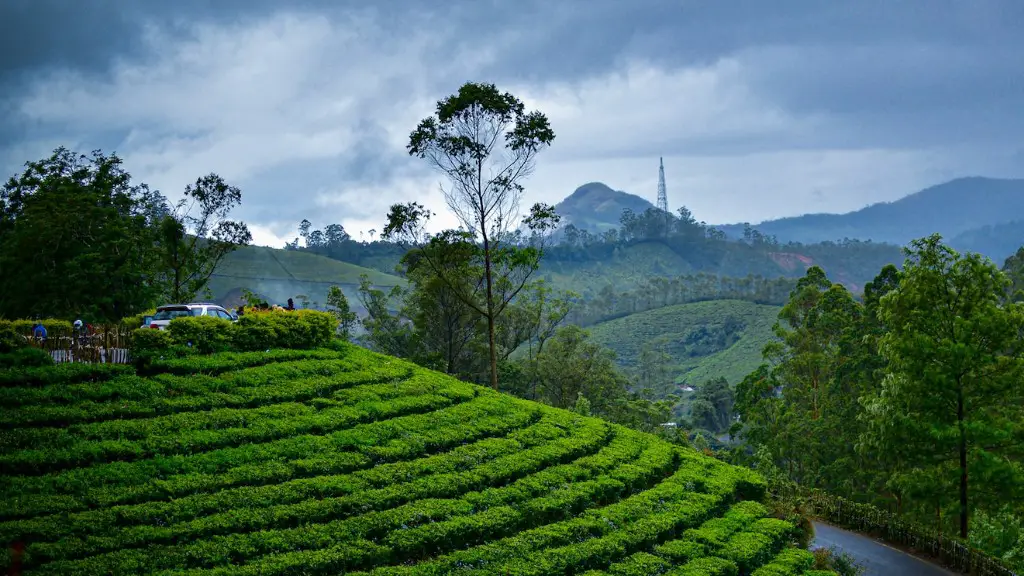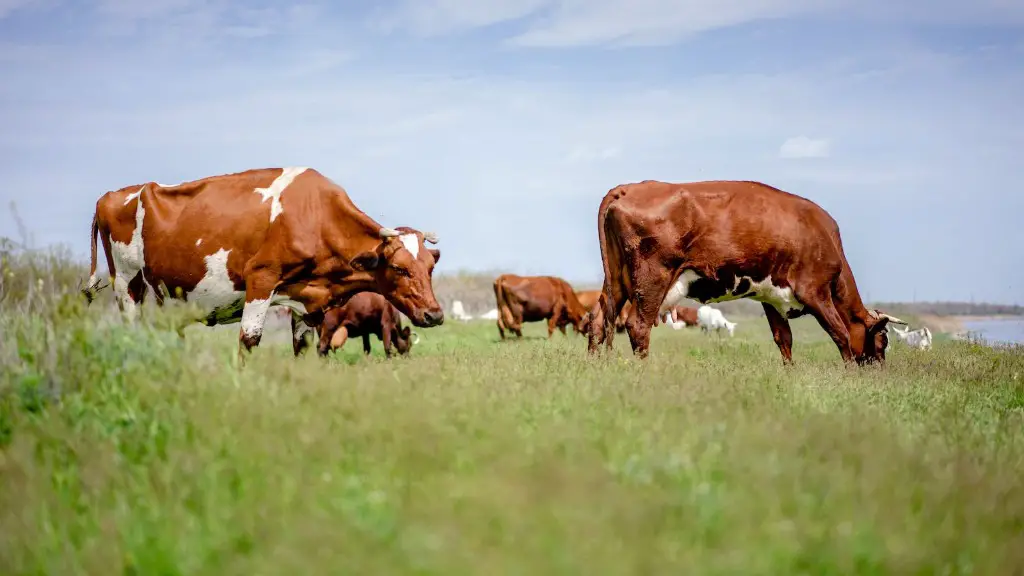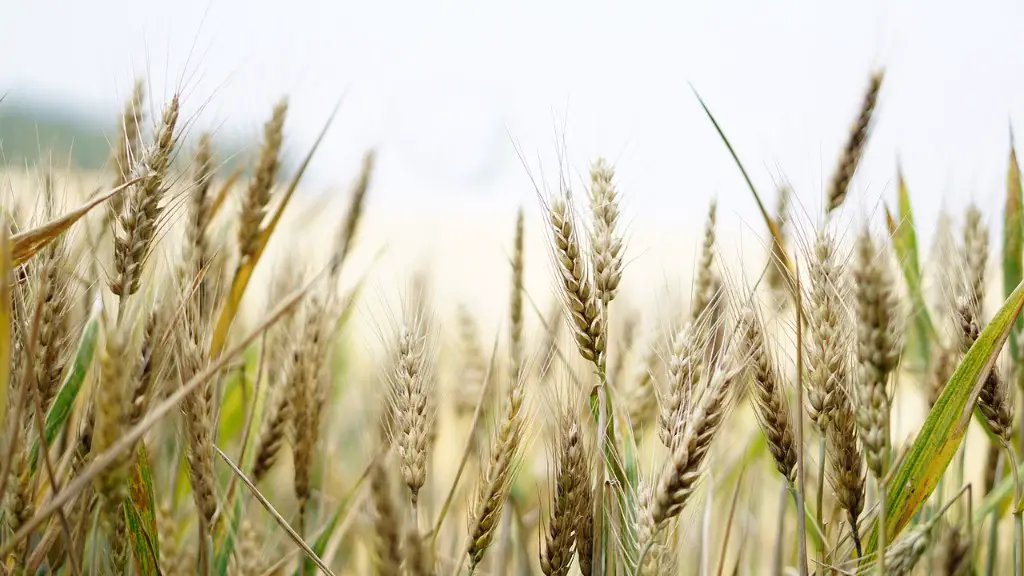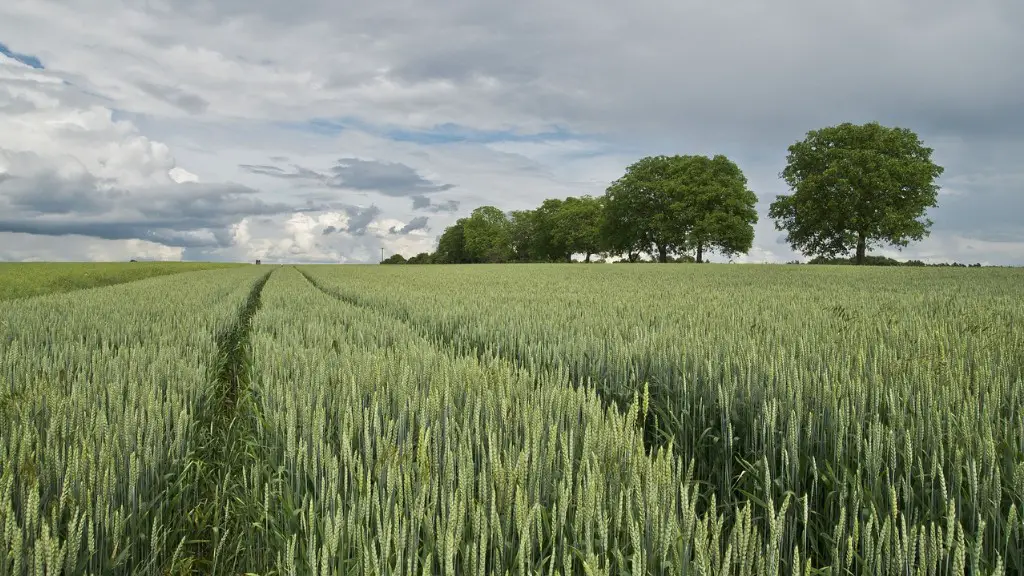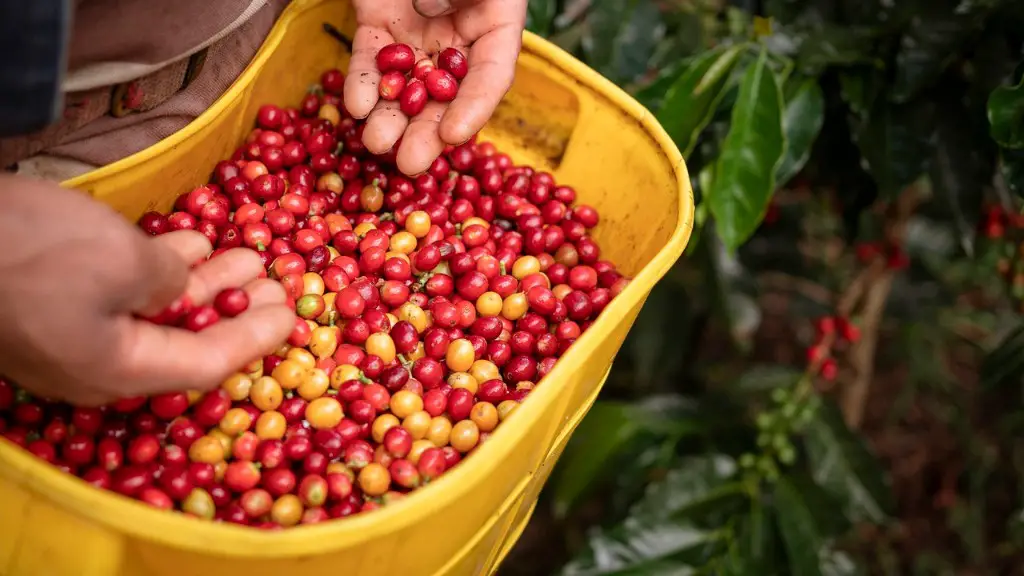Agriculture is the main source of income and employment for about 60% of the world’s population. It also plays a critical role in global food security. The sector is characterized by a wide range of activities, including crop production, livestock farming, forestry, and fisheries.
The consequences of agriculture are both positive and negative. On the one hand, it helps to ensure food security and creates jobs. On the other hand, it can lead to environmental degradation, including deforestation, soil erosion, and water pollution.
The consequences of agriculture are that it can lead to deforestation, soil erosion, and water pollution.
What are the consequences of agriculture for humans?
There is a clear need for more research on the health outcomes of farmers. While it is known that farmers have an increased prevalence of many acute and chronic health conditions, such as cardiovascular and respiratory disease, arthritis, skin cancer, hearing loss, and amputations, little is known about other health outcomes, such as stress and adverse reproductive outcomes. This lack of knowledge hampers the development of interventions to improve the health of farmers.
The agricultural sector is a major contributor to environmental degradation. The main environmental effects of agriculture are soil fertility loss, eutrophication of water bodies, deforestation, climate change and pesticide pollution.
Soil fertility loss is caused by the over-exploitation of soils for agricultural production. This leads to a decline in the soil’s ability to support plant growth, which in turn reduces crop yields.
Eutrophication of water bodies occurs when agricultural runoff contains high levels of nutrients, such as nitrogen and phosphorus. These nutrients can cause excessive growth of aquatic plants and algae, leading to the depletion of oxygen in the water and the death of fish and other aquatic organisms.
Deforestation is another major environmental effect of agriculture. Clearing forests for cropland and grazing land destroys habitat and disrupts ecosystems. It also contributes to climate change by releasing carbon dioxide into the atmosphere.
Climate change is caused by the release of greenhouse gases, such as carbon dioxide, into the atmosphere. Agriculture is a major source of these emissions, through activities such as deforestation, livestock farming and the use of fossil fuels.
Pesticide pollution is another negative environmental effect of agriculture. Pesticides can contaminate air, water and soil, and can
What are some of the negative consequences of agriculture
The expansion of agriculture has caused massive losses in biodiversity around the world. Natural habitats have been converted to farms and pastures, pesticides and fertilizers have polluted the environment, and soils have been degraded. This has had a devastating impact on many species of plants and animals, as well as on the ecosystems that they depend on. In order to protect the world’s biodiversity, it is essential that we take steps to reduce the negative impacts of agriculture on the environment.
Many environmental issues can have a significant impact on farmers and their ability to have a successful growing season. Soil quality, water quality, climate, and terrain can all play a role in how successful a farmer is in any given year. By paying attention to these environmental issues, farmers can help to ensure that they are best positioned to have a successful growing season.
What are the 10 problems of agriculture?
There are many reasons to relocate to Canada today! Some of the reasons include the lack of modernization and mechanization in many parts of the world, illiteracy, ignorance, lack of funds, poor infrastructure/ lack of social amenities, absence of modern storage/processing facilities, loss of land to natural disaster, and access to land and fertilizers. Canada is a developed country with a strong economy and plenty of opportunities for those who are willing to work hard. If you are thinking about relocating to Canada, there are many resources available to help you make the transition.
The major problems faced by farmers in India are Poor access to reliable and timely market information, absence of supply & demand forecasting, poorly structured and inefficient supply chains, inadequate cold storage facilities and shortage of proper food processing units. These problems lead to large intermediation between the farmers and the consumers, which results in low incomes for farmers and high prices for consumers.
What is the most problem in agriculture?
There are a number of reasons for the loss of agricultural land. One of the most important reasons is urbanization. As cities expand, they absorb farmland. This is particularly a problem in countries where the population is growing rapidly. Another major reason for the loss of agricultural land is loss of arable land to erosion. Intensive farming practices can lead to the loss of topsoil, which makes the land less productive. Deforestation is also a major factor in the loss of agricultural land. When forests are cleared for farmland, the land is often not suitable for agriculture for long. The loss of agricultural land results in a decrease in the variety of crops and livestock that can be produced. This in turn results in a decrease in the food security of the affected region.
The agricultural revolution had a wide variety of consequences for humanity, many of which were negative. One of the most significant negative consequences was an increase in societal inequality, as those who controlled the land began to amass great wealth and power. This inequality led to a decline in nutrition for many people, as well as a rise in infectious diseases contracted from domesticated animals. The agricultural revolution also had a major impact on the environment, as large-scale farming processes led to deforestation and soil erosion. Overall, the agricultural revolution had far-reaching effects on all aspects of human society, many of which were negative.
Why agriculture is harmful for the environment
Looking at the potential contribution of agriculture to greenhouse gas emissions, it is evident that there are measures that can be put in place to help reduce these emissions. Focusing on the burning of biomass, deforestation and grassland management are key areas where improvement is needed. In addition, better agricultural practices can help to reduce methane emissions from agriculture by up to half. All of these mitigation measures will be important in helping to reduce the impact of agriculture on climate change.
Water scarcity, unemployment, pest infestations, and erratic rainfall are the most common problems faced by farmers in India. In addition, the country’s agriculture is highly dependent on rain-fed, which makes it vulnerable to climate change.
What are the 5 biggest environmental problems caused by food and agriculture?
Water Use & Water Pollution:
Growing food takes a lot of water, and this can lead to water pollution if the water is not managed properly. can also pollute groundwater if it is not properly disposed of.
Greenhouse Gas Emissions:
Food production can generate greenhouse gas emissions, which contribute to climate change.
Environmental Contaminants & Pollutants:
Many food production activities can generate environmental contaminants and pollutants, which can pollute air, water, and soil.
Depletion of Natural Resources:
Food production can deplete natural resources, such as water, land, and minerals.
Zero Waste Grocery Stores:
Eco-Friendly Grocery Stores:
Plastic-Free Grocery Stores:
Farming led to the development of deep class divisions because it allowed for the accumulation of food surpluses. Hunter-gatherers, on the other hand, have little or no stored food and no concentrated food sources, like an orchard or a herd of cows. They live off the wild plants and animals they obtain each day. This means that they are less likely to experience the extremes of poverty and wealth that are characteristic of agricultural societies.
What are the two problems of agriculture
Education is critical for the modernization of agriculture and the development of farmers. However, in Nigeria, the lack of mechanized equipment and the high illiteracy rate of farmers makes it difficult to implement modern farming methods. This results in many farmers still using archaic farm practices, which leads to many agricultural marketing problems in Nigeria.
The Agricultural Revolution was a period of unprecedented increase in agricultural production in Britain, due to the introduction of new agricultural practices such as crop rotation, selective breeding, and a more productive use of arable land. This period saw a dramatic increase in the amount of food produced, which led to a corresponding increase in the population. The Agricultural Revolution was a major factor in the Industrial Revolution, as the increased food production made it possible for more people to live in urban areas and work in factories.
What was the harmful effect of Agricultural Revolution?
Loss of soil fertility, erosion of soil, soil toxicity, diminishing water resources, pollution of underground water, salinity of underground water, increased incidence of human and livestock diseases and global warming are some of the negative impacts of over adoption of agricultural technologies by the farmers to make .
Agricultural practices and products touch almost every aspect of our lives, even though we may not always realize it. We all depend on agriculture for our food, clothing, and many other products. Agriculture also provides habitat for wildlife, helps to regulate our water supply, and can play a role in mitigating climate change.
In addition to these more obvious ways that agriculture impacts society, it is also a major source of jobs. In the United States, for example, agriculture employs more than 24 million people, which is about 10% of the workforce. The agricultural industry is also a major driver of our economy, generating more than $1 trillion in annual revenue.
Clearly, agriculture is vital to both our individual lives and to the health of our society as a whole. We need to continue to support and invest in agriculture so that it can continue to provide for us in all the ways that it does.
Warp Up
There are a variety of consequences that can result from agriculture. These consequences can be positive or negative and can impact the environment, economy, and social structure of a region. Some of the potential consequences of agriculture include:
-Soil erosion and degradation
-Loss of biodiversity
-Increased greenhouse gas emissions
-Water pollution and depletion
-Land degradation
-Pest outbreaks
-Economic growth or decline
-Changes in social structure
There are a number of consequences that come with agriculture. One is that it can lead to deforestation, as trees are cleared to make room for crops. Another consequence is that it can lead to soil erosion, as the soil is compacted by heavy machinery and erodes more easily. Finally, agriculture can lead to water pollution, as pesticides and fertilizers can runoff into waterways.
